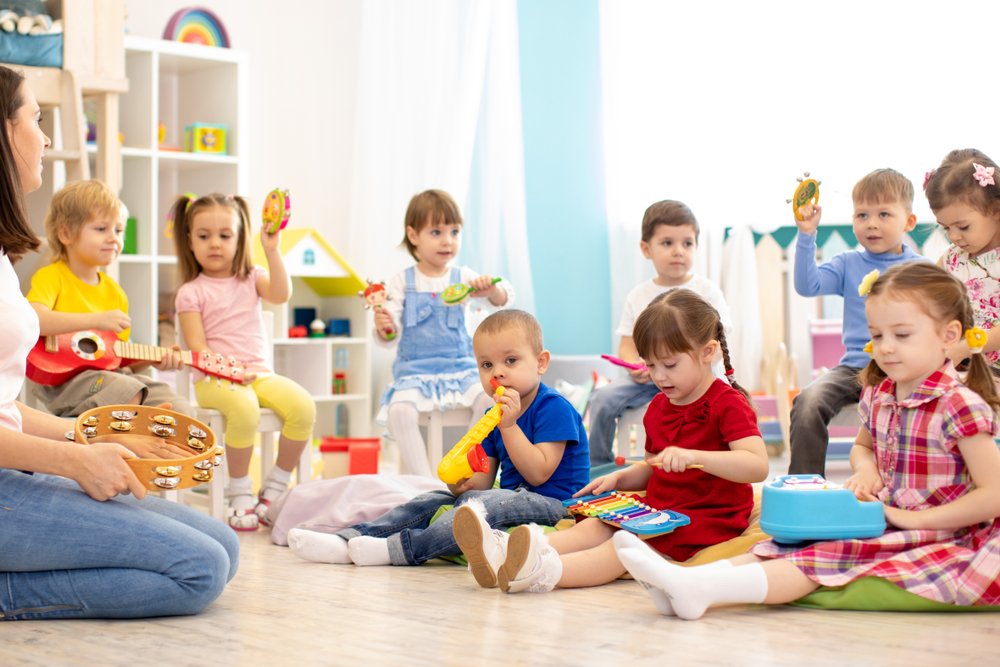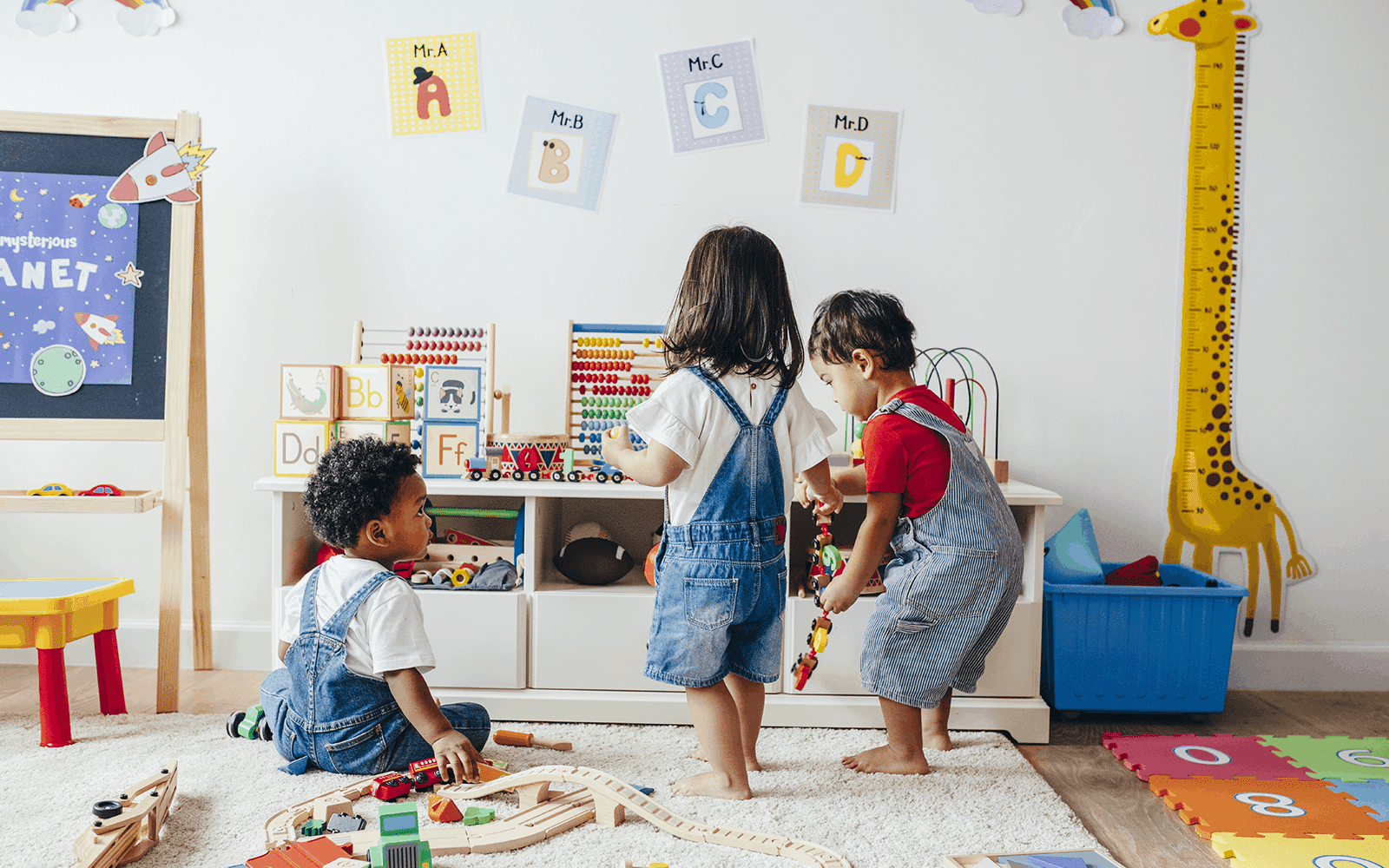Key Safety Measures Every Child Care Center Should Implement
Wiki Article
The Function of DAYCARE in Fostering Social Abilities and Early Learning
Day care offers as a significant atmosphere for young children, helping with vital social communications that promote very early discovering. In this organized setting, youngsters involve with peers and caregivers, developing crucial communication and cooperation skills. As they browse play and different tasks, they discover to solve problems and develop emotional knowledge. Understanding the subtleties of these interactions discloses the extensive influence day care carries a kid's growth, forming their future relationships and scholastic preparedness. What details skills do children obtain in this setting?The Importance of Social Communication in Daycare
While several parents acknowledge the value of very early childhood years education, the duty of social interaction in day care is usually undervalued. Childcare settings supply kids with vital possibilities to involve with peers, fostering essential social abilities. During these formative years, kids find out to navigate different social dynamics, such as sharing, participation, and problem resolution. Engaging with varied age and individualities improves their capability to adapt to various environments and establish compassion towards others.
Structure Interaction Skills Through Play
Play offers as a powerful medium for children to build crucial communication skills in day care setups. Via various play tasks, children talk, reveal their ideas, and discover to pay attention to others. Role-playing video games, as an example, encourage them to utilize language in different contexts, promoting vocabulary expansion and understanding of social signs.
Storytelling during play permits youngsters to communicate ideas and feelings, helping them create narrative skills and self-confidence in their verbal expressions. Overall, play not just acts as an enjoyable activity but likewise as a vital system for developing the interaction abilities needed for successful social communications in later life.
Motivating Teamwork and Synergy
Teamwork and team effort are vital skills that kids can cultivate in day care settings. Through different group activities, such as building projects or collective games, children discover to share duties and job towards common objectives. These communications foster an understanding of the significance of listening to others, bargaining functions, and compromising when needed.In childcare settings, caregivers commonly create opportunities for youngsters to take part in synergy by encouraging them to take part in group tasks. This not just assists children create social bonds yet likewise cultivates a feeling of belonging and area.
As they navigate these participating experiences, kids acquire important insights right into the dynamics of dealing with peers. They discover to appreciate varied perspectives and identify that each participant adds distinctly to the team effort. Eventually, these early lessons together and teamwork prepared for much healthier partnerships and effective collaboration in future social and scholastic setups.
Structured Learning Activities and Cognitive Advancement
Structured understanding tasks play an important duty in cultivating cognitive development in young kids (Child Care Near Me). These tasks, which include challenges, storytelling, and hands-on experiments, promote important reasoning and analytic abilities. In a day care setting, structured discovering encourages children to involve with their peers, enhancing their capacity to process information and understand different principles
With assisted play and interactive jobs, youngsters establish fundamental abilities such as numeracy and proficiency. For circumstances, activities focused around numbers can help youngsters grasp mathematical concepts, while narration improves language purchase and understanding. Additionally, structured knowing enables teachers to examine developmental development and dressmaker activities to private knowing demands.

Integrating a diverse array of structured tasks not just advertises cognitive growth however additionally prepares kids for future scholastic success. By providing a well balanced setting that fosters expedition and query, day care programs play an important function in forming the cognitive abilities of young students.
Cultivating Emotional Knowledge and Confidence
Psychological intelligence and self-confidence are important parts of a child's growth, matching the cognitive abilities cultivated with structured knowing activities. In daycare setups, youngsters are supplied with chances to express their emotions and take part in social communications, which are critical for building psychological understanding. Through directed play and group tasks, kids learn to recognize their sensations, identify those of others, and establish empathy.In addition, communication with peers and caretakers aids to cultivate self-confidence and resilience. Positive reinforcement and support from grownups encourage children to take risks and face challenges, fostering a feeling of accomplishment. As they navigate social dynamics, kids build self-confidence in their capabilities to communicate, work together, and deal with problems - click this site Child Care Center. This caring atmosphere enables the progressive growth of emotional knowledge, which is necessary for future interpersonal connections and total health. Therefore, daycare plays a considerable function in promoting both emotional intelligence and confidence in young kids
Often Asked Inquiries
Exactly How Can Parents Choose the Right Childcare for Their Youngster?
Parents ought to take into consideration aspects such as location, staff certifications, security see this website standards, educational program, and reviews from other moms and dads when picking the best daycare for their child, ensuring it lines up with their child's developing requirements and family values.
What Age Is Finest for Beginning Daycare?

Just How Does Childcare Effect Children's Behavior in your home?
Day care often positively influences children's actions at home by boosting social skills, promoting self-reliance, and motivating psychological regulation (Childcare Near Me). Consequently, kids may exhibit better communication and teamwork, bring about even more unified household characteristicsExist Any Drawbacks to Daycare Participation?
Yes, there are drawbacks to daycare participation, consisting of prospective splitting up anxiousness, exposure to diseases, and irregular caregiving. These variables can affect a child's psychological wellness and change in your home, impacting overall family members characteristics.How Can Parents Support Social Abilities Found Out at Day Care?
Moms and dads can sustain social skills discovered at day care by helping with playdates, motivating participating activities, modeling positive interactions, going over sensations, and reinforcing sharing and interaction in the house, thus enhancing their child's social advancement and confidence.Childcare serves as a significant setting for young youngsters, helping with important social interactions that promote very early understanding. Daycare setups offer kids with vital chances to engage with peers, fostering crucial social skills. Play offers description as a powerful medium for kids to construct vital communication abilities in childcare setups. In childcare setups, youngsters are offered with chances to share their emotions and involve in social interactions, which are crucial for constructing emotional awareness. Day care frequently positively affects youngsters's behavior at home by improving social skills, promoting self-reliance, and encouraging psychological law.
Report this wiki page